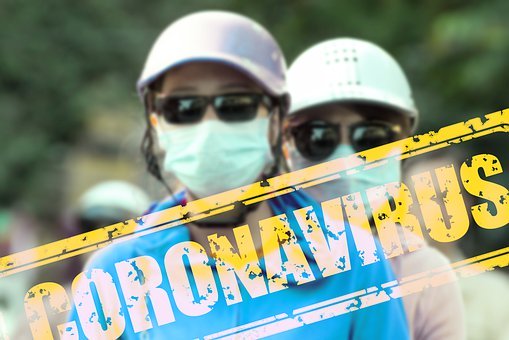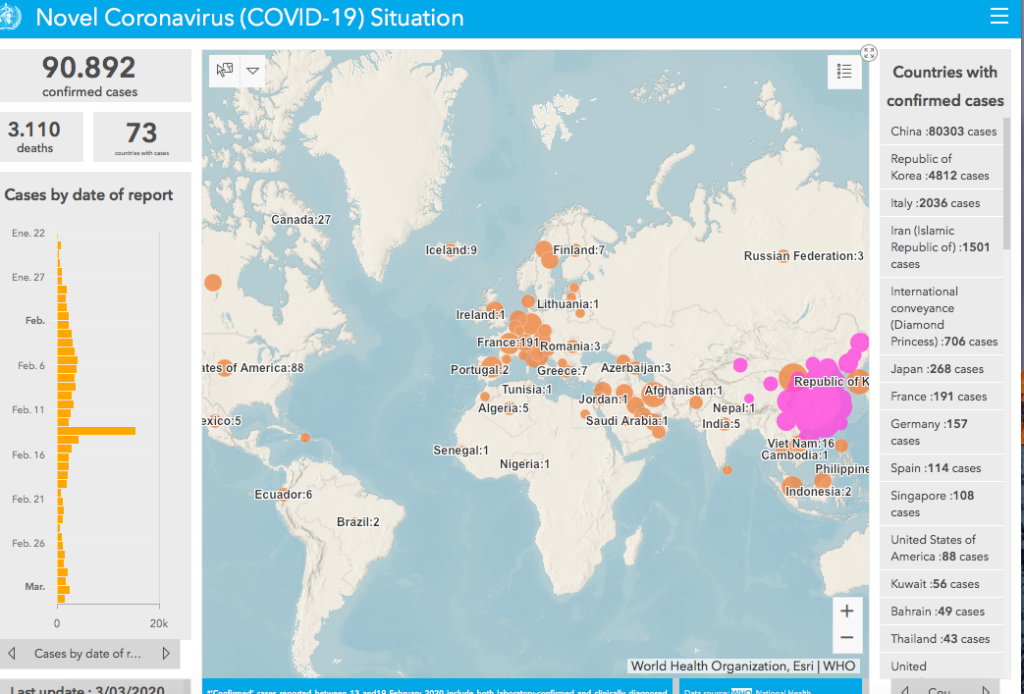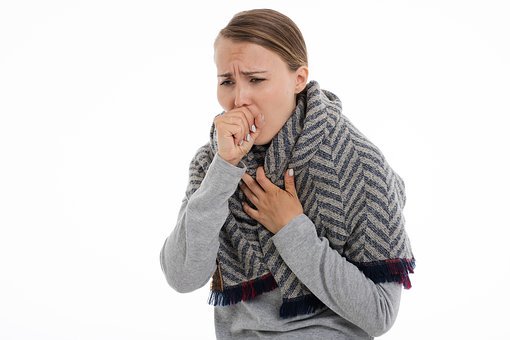
Now more than ever, the world should take safety measures against Coronavirus very seriously, as the outbreak has officially reached the highest level alert. Since the start of 2020, what seemed like a common cold had become a mass-killing disease. So far, over 3000 people have died from this virus, and almost 91.000 cases have been confirmed.
The World Health Organization, as well as several governments have made in place safety measures to control the fast spread of coronavirus. We have investigated several medical sources to bring you up-to-date with all the precautions you should take in order to prevent catching the coronavirus.
From a Virus To An Epidemic In 3 Months

Coronavirus first started in the city of Wuhan in China. In few weeks, several parts of the country were already touched by the virus. Despite the desperate attempts to create quarantines and airport based tests, the virus managed to spread very quickly.
Today, and just 3 months later, 73 countries have officially confirmed coronavirus cases within their territories. In fact, Italy is now the highest European country with recorded infections, and also deaths. Governments have advised their citizens to be extra careful, and report even the slightest symptoms to health experts. The current virus map is quite alarming, as it shows that most countries have recorded at least one coronavirus infection.
How To Tell the Difference Between Common Cold and Coronavirus Symptoms?

Furthermore, and since the complexity of the disease is actually noticing it. Coronavirus takes two weeks to show symptoms after the infection occurs. Consequently, the struggle is realizing wether your are having a simple seasonal cold, or what could be a deadly virus.
Although the symptoms are very similar, coronavirus affects your respiratory system. Therefore, if you have a dry cough, fever, abdominal pain and problems breathing, it would be wise to get tested. However, the WHO insists that coronavirus is just like any virus, affects mostly elderly, people with existing health problems, and those with a poor immunity system.
As oppose to a normal cold, coronavirus can not be treated with regular medicine. Yet, it still get transmitted through human contact, and touching surfaces that have been infected.
What Can You Do To Keep Coronavirus Away?
According to health organizations, doctors and experts, there exists a few safety measures to keep the coronavirus away. Moreover, they insists that taking extra hygiene precautions could help you prevent catching the virus.
Firs of all, they advise to keep your distance from people who might seem relatively sick. If you are taking public transportation daily, you should consider keeping at least a 1 meter distance between you and other people. In general, avoid close contact with people who are not very close to you. Second, make sure to cover your mouth after sneezing or coughing, and avoid touching any surfaces after that, as the germs stick quickly and the virus could stay active for days. Third, wash your hands on the regular, and especially do not touch your face, nose, and mouth as that’s the entrance of the virus to the body. Also, try to wear gloves when circulating in big cities.
In addition, experts insist that if you haven’t been in any of the highly infected zones, or didn’t experience any of the symptoms in the following 14 days after your return, you shouldn’t be worried. However, since coronavirus is highly catchy, applying the recommended safety measures, watching for yourself and reporting any symptoms can help reduce your chances of developing it.
Photos: WHO, Pixabay.
